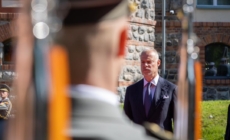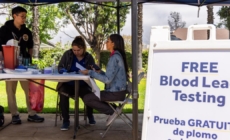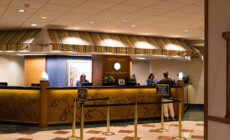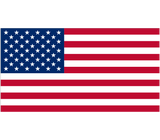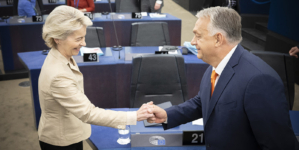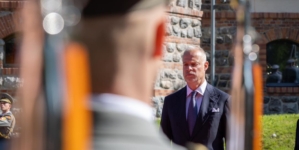-
FM: Presence of Trump at NATO summit ‘changed everything’ - 5 mins ago
-
Cubs May Already Have Justin Steele Replacement In Mind - 8 mins ago
-
Barry Bonds Statue Coming Outside of Giants’ Oracle Park - 21 mins ago
-
Orbán: EC should refrain from interfering in the law enforcement affairs of member states - 40 mins ago
-
Reservoir in Pacific Palisades back in service after lengthy repairs - 43 mins ago
-
Red Sox Send Alex Bregman Message After Extension Update - 47 mins ago
-
2025 LIV Golf Dallas Odds, Predictions: Favorites, Picks From the Field - about 1 hour ago
-
Defense Minister: Hungary has a vested interest in NATO remaining a strong defense alliance - about 1 hour ago
-
Last chance for L.A. fire victims to have free blood lead testing - about 1 hour ago
-
Dodgers Urged To Swing Trade With AL Contender For $5.7 Million Pitcher - about 1 hour ago
Chinese President Xi Jinping’s Tough Childhood Revealed in New Book: Excerpt
Chinese President Xi Jinping’s father, Xi Zhongxun, was a Communist Party official for more than seven decades—from the Communist Revolution through the Great Leap Forward, the Cultural Revolution, the Tiananmen Square protests and beyond. In the first English biography of Xi Zhongxun, The Party’s Interests Come First, Professor Joseph Torigian uncovers the story of his life and of the modern Communist Party—and sheds light on the formative influences on Xi Jinping. This excerpt from Torigian’s deeply researched book talks about the family’s home life.
Xi Zhongxun huace
At work, Xi Zhongxun faced a dizzying array of policy challenges and the vicissitudes of his own shifting fortunes. But in party culture, home life was no escape from the political. Everything from schooling and leisure to clothes and food in the Xi household were shaped by broader preoccupations within the elite. Aaron Solts, the Soviet Union’s most famous theorist of Bolshevik ethics, had asserted that “the family of a Communist must be a prototype of a small Communist cell” and “must, in all their work and life, represent a unit of assistance to the Party.” Domesticity presented an existential challenge to the Communist war on bourgeois weakness and materialism. Having fought decades of war to establish a transformational regime, party leaders in China were proud of what they had achieved yet concerned about their families losing the revolutionary élan that had proven so instrumental. The leadership, including Xi, worried that the next generation would grow up spoiled and separated from the so-called masses.
Before he arrived in Beijing in 1953—well before the one-child policy—Xi was already a father to three surviving children with his first wife (a son, Zhengning, and two daughters, Heping and Qianping), as well as two daughters with Qi Xin (Qiaoqiao and An’an). Two more sons, Jinping and Yuanping, were born in the capital in 1953 and 1955, respectively.
All the children lived at school during the week. Qiaoqiao, An’an, Jinping and Yuanping all went to middle school at the August 1 School, where the students were primarily the children of high-ranking military, not political, figures. One graduate described the school as a place where “softness and delicateness were especially despised.” Although it was tough, the August 1 School was also an exciting place. The students “were full of resolution to give their lives to the desire to struggle, the will to serve, the collective spirit and sincere beliefs and traditional pursuits, and at the same time, they were full to the brim with the special confidence and pride of victors,” according to one former student. The education system emphasized class struggle, teaching that enemies could be lurking behind any problem, that anyone could be an enemy, and that such enemies were to be treated viciously. During political-education class, they read books such as Be a Successor to the Revolution, which in Jinping’s own words “influenced the idealistic beliefs and life choices of our generation.”
Graduates of the school credit the education there with giving them the spiritual power not to lose hope during the dark times that were to come during the Cultural Revolution.
In 2003, an interviewer bluntly asked whether Xi Jinping had enjoyed a privileged lifestyle as a child. Xi responded: “It can be put this way: there were no worries about clothes or food, but my father’s demands upon us made us live very frugally.” As an example, Xi said that he was forced to wear the clothes of his older sisters as hand-me-downs. He tried to depict his own family as especially thrifty, but in doing so, he also revealed the “privileges” he enjoyed when participating in activities with the party elite: “At the Lunar New Year, we participated in several evening parties; when we went to the Great Hall of the People or to Tiananmen Square, the staffers would ask whose children were wearing such run-down clothing? Those who understood would reply that we were the children of the Xi family.”
Xi did spend time with his children on weekends. By several accounts, Xi was a ferocious disciplinarian. Even Qi Xin wrote: “Sometimes, I really believed that your demands on the children were too strict.” Xi’s children often spoke of their father’s thriftiness. Qianping wrote: “When we were little, none of us were willing to eat at the same table as father. We were terrified of his strict rules on frugality…. For example, when eating, he never allowed us to drop a single piece of rice or bits of food; if we were not careful and dropped any food, he would immediately pick it up and eat it.” In 2001, Jinping told two interviewers at the end of a conversation that he would not ask them to stay and eat. “Actually, eating with me is a form of suffering,” he said. “I am the son of a peasant. I have never been picky about eating, and, moreover, I never allow people to leave any leftovers.”
Xi’s harshness also included physical punishment. In his diaries, Li Rui described a conversation with Ren Zhongyi—who would later succeed Xi as party boss of Guangdong—in March 1998: “[We] discussed how Xi raised his three sons; he was extremely brutal based on feudal rules of etiquette that included beatings.” Journalist John Garnaut, who has conducted extensive interviews with elite political families in China, writes: “Xi Zhongxun, despite his noble exterior, drank too much and would occasionally explode with anger. His children were sometimes on the receiving end of his anger, according to a close family friend who witnessed such occasions.” According to another journalist with deep ties in Beijing, on one occasion, Xi was so angry that he lined up his children, as well as the child of another high-ranking leader, and struck them one by one.
Xi was tougher than most, but his behavior was still reflective of the context of the times. Many “cadre offspring” deeply worried their parents because they played too much and did not study hard. The Xi household was not the only “Red aristocratic” family in which children would kowtow; many elite families had such strict protocols. When a friend asked Xi why he was so cruel, he responded: “I do not do this to make them fear me. It is to make them feel a sense of awe and veneration for heaven and earth so that, from a young age, they have understood that one cannot act in an anarchic fashion.” Children who did not respect their parents were a disaster when they entered society.
But Xi had a softer side too. On one occasion, he carried Jinping on his head. When Jinping started urinating on him, Zhongxun waited patiently until Jinping had finished. Xi believed that when children were urinating, they should not be frightened, otherwise they will “have an illness for the rest of their life.” Xi and Qi Xin would help their children jump rope, and they played “horse” on their father’s back. Although the children feared their father, they cherished the time with him. In Qiaoqiao’s words: “I was happiest at those times, but the time we had together with father and mother was truly too little.”
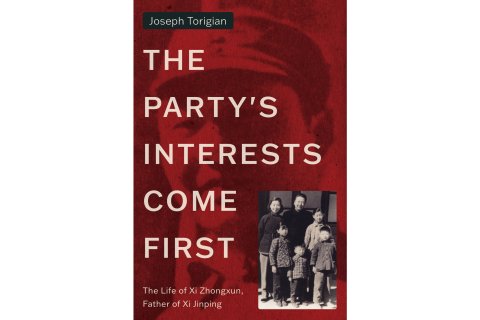
Courtesy of Stanford University Press
Excerpted from The Party’s Interests Come First: The Life of Xi Zhongxun, Father of Xi Jinping, published by Stanford University Press, ©2025 by Joseph Torigian. All Rights Reserved.
Source link





